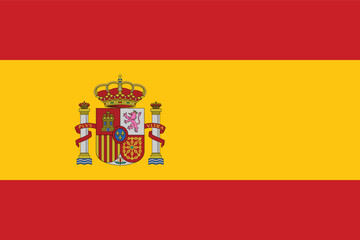

Start your journey to a global career with Spain’s lively and diverse education system. Build your skills and creativity in a country known for its top universities, innovative research, and focus on future challenges. Spain offers a unique mix of quality education and rich cultural experiences, making it an ideal place for international students.
Statistics & Figures About Spain

CURRENCY:
Euro

GEOGRAPHICAL SIZE:
506,030 km sq

LANGUAGE:
Spanish, Catalan, Galician, Basque

POPULATION:
48.37 Million (2023)

GDP:
$1.581 Trillion (2023)

CAPITAL:
Madrid
Why You Should Select Spain?

Quality Education
In Spain, you will find some of the best universities in Europe and the world, which offer high-quality education and research opportunities.

Affordable Living Costs
Compared to the USA and other countries in Europe, the cost of living in Spain is generally lower, making it an affordable destination for international students.

Cultural Diversity
Spain is a culturally diverse country with a rich history, vibrant festivals, and unique traditions. Studying your university degree in Spain allows international students to immerse themselves in this diverse culture, savor its cuisine, and learn about the country’s history and traditions.

Strong International Connections
Spain is a member of the European Union and has good international connections, which can be very beneficial for students wishing to visit other countries in Europe, the Middle East or North Africa. Such as France, Italy, Egypt, Israel or Morocco among many others.

Job Opportunities
Spain has a strong economy and a high demand for skilled workers, particularly in fields such as Business Management, Marketing, and Communication. Studying in Spain can provide you with valuable internships and job opportunities after graduation.

Great Climate

Multilingual Experience
Spanish is the official language of Spain and the second most spoken language in the world, so studying your university degree in Spain is a great opportunity to learn a language that can be of great use to you in the future. In addition, at CIS University, we have a language exchange program in which our students meet with other international students to encourage the learning of new languages beyond English or Spanish.
Frequently Asked Questions
Most student visas are issued with permission to work. If, for any reason, your student visa is issued without the right to work, you will need to apply for a permission-to-work student visa after commencing classes.
Holders of a student visa can work up to 20 hours per week while their university program is in-session, and full-time during university vacations. In general, students should not expect to cover tuition fees or living expenses from casual work.
Whilst Research/Thesis Higher Degree applicants are entitled to work unlimited hours they must maintain full-time enrolment in their studies and meet the requirements of their program.
Students can apply for part-time work in a range of areas. However, sometimes it can be difficult to find work in areas of interest. Students can get support from career advisers in finding employment through help with resume and interview skills as may be needed.
Some of the universities and colleges have internship programs which provide an employment opportunity. In some cases, research higher degree students may possibly find employment as research or tutorial assistants.
Most institutions provide a range of accommodation options for students. These range from on-campus to off-campus with homestay options or student share. The rent will vary depending on the location and the type of room or the options included.
Universities, colleges and schools are located within areas with well-developed infrastructure and social networks. These provide an opportunity where students can freely socialise and develop a network of friends by extension social capital. some of these include:
Clubs | Music| Sports | Beautiful Beaches | Dolphin Watching | Vineyards | Parks | Historical sites among others
There is good weather all year round. It is important that students always take care of themselves.
Transport to and from the colleges is fantastic. buses, trains and ferries are the main mode of transport. You can also walk or cycle to and from class depending on how far you live.
Popular Degree Options in Spain

Business Administration and Management

Tourism and Hospitality Management

Fashion Design and Luxury Management

Linguistics and Spanish Language Studies

Engineering and Technology

Data Science and Artificial Intelligence

Medicine and Healthcare

Arts and Humanities

Architecture

International Relations

Law and Legal Studies

Environmental Sciences
Interesting Facts
- Spain is the second-largest country in the European Union by land area, after France, with diverse landscapes ranging from beaches to mountains.
- Spain boasts the third-highest number of UNESCO World Heritage Sites globally, including iconic landmarks like the Alhambra, Sagrada Familia, and Camino de Santiago.
- Flamenco music and dance originated in Andalusia and are an integral part of Spain’s cultural identity.
- Spain is famous for its “siesta,” a midday break, though modern work schedules mean it’s less common in larger cities.
- Spain’s pleasant weather, with warm summers and mild winters, is a significant draw for international students.
- Studying in Spain provides a great chance to learn or improve Spanish, one of the most widely spoken languages in the world.
























